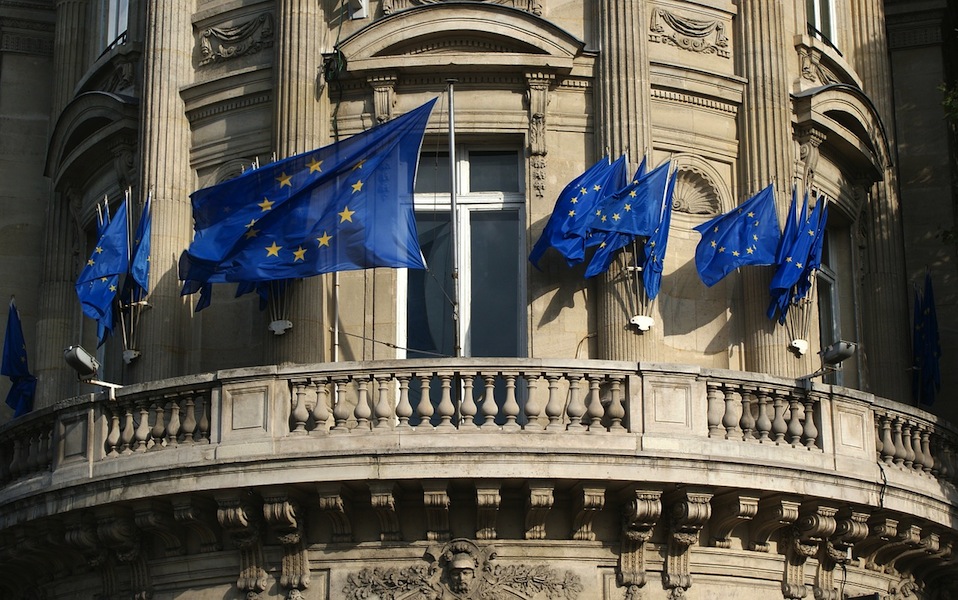In the aftermath of Brexit, the uncertainty surrounding how the European Union (EU) will proceed without Britain is being thrust into the limelight, raising concerns about the survival of a project that is over fifty years in the making. It is commonly known that certain members states, like Germany and France, have long acted as the economic powerhouses of the EU but a recent article released by American economist Paul Craig Roberts in Foreign Policy Journal, on July 29, 2016, indicates that there may be a new puppet master calling the shots and in fact, one that has been calling them all along.
EU scholars and experts have long pointed to tendencies for member states having to pay significant funds to northern European private banks, at the expense of “living standards of their populations and by privatizing public assets at pennies on the dollar.” thus highlighting that EU membership may come at a grave cost. And the most likely trend for this is American hegemony.
This trend for Washington to extend its influence beyond its borders is not a new phenomenon. In fact, American involvement in Europe stretches back to the aftermath of WWII. After years of mass atrocity and bloodshed, the world banded together under the American leadership to construct a new open world economic order that promoted international security and prosperity. The US spearheaded the Marshall Plan, a $12 billion USD investment towards the reconstruction of Western European economies. In 1944, the Bretton Woods agreement was signed, a landmark system for monetary and exchange rate management that would inaugurate the General Agreement on Trade and Tariffs (GATT), the International Monetary Fund (IMF) and the International Bank for Reconstruction and Development, later renamed the World Bank.
The integration came at a heavy price for the EU, whose member states had to relinquish part of their territorial and economic sovereignty under the auspices of the European project, formally solidified as the EU under the Maastricht Treaty on November 1, 1993. Moreover, many EU member states sacrificed their domestic currencies for the euro, leading them to have to rely on private banks to finance their domestic deficits. Loans for the repayment of extortionate debts were no longer an option, resulting in the economic downfall of what are referred to as the PIIGS countries (Portugal, Italy, Ireland, Greece, and Spain) that continues to this day.
In relinquishing partial sovereignty and economic freedom, member states have been left to idly stand by as their balance of payments run further into the red, prompting them to ask for help, as witnessed in the Grexit crisis in 2014. The US has seemed eager to lend a helping hand without explicitly demanding anything in return. But as Roberts suggests, this ‘philanthropic act’ actually allows Washington to adeptly manipulate the EU into thinking it is running its own internal affairs.
This manipulation tactic is exemplified by Roberts’ description of the relationship on Genetically Modified Organisms (GMOs) between Europe and the US.
President Obama attempted to pass a bill on July 1, 2016, that obligated Vermont, a mass producer of GMOs imported by Europe, to label all GMO products for purposes of transparency. However, due to complaints from local food industries, the law was overturned by Vermont on August 4, 2016. Biotech giant Monsanto, an American sustainable agriculture company that exports patented GMOs, ended up suing Vermont. And despite the bill’s being repealed, the company is going one step further.
Monsanto is heavily relying on the country’s agreement to the Transatlantic Trade and Investment Partnership (TTIP), a free trade investment between the US and the EU, intended to promote jobs and overall economic growth in both regions. However, several critics argue that Europe is getting the short end of the stick with TTIP, as a result of the agreement’s inability to guarantee transparent relations, instead permitting the US to engage in “secretive deals” between parties of its choosing. The TTIP, devoid of any accountability, gives the US the power to dictate trade terms in its relations with the EU, thus proving retention of its hegemony.
Further, there is widespread fear that German pharmaceutical giant Bayer will buy out Monsanto, meaning both companies would be bound by a contract drafted by US global corporations that would inevitably tip the scales in Washington’s favour. Monsanto-Bayer would undoubtedly monopolize European agriculture, a manipulation tactic made possible due to Washington’s ability to pump money through TTIP. According to Roberts the maintenance of the European project may be directly tied to the accountability of the US’s money.
Given the context of a post-Brexit EU geopolitical order, the US’s vested interest in helping out the EU and its desire to profit may not be mutually exclusive. It is clear that in spite of its discarded partial sovereignty, the EU will have to be unafraid to develop a sense of autonomy to ensure its member states are protected, both militarily and economically if the ‘European project’ has any hope of surviving.
Photo: European Union flags on the Bank of France building in Paris. Public Domain.
Disclaimer: Any views or opinions expressed in articles are solely those of the authors and do not necessarily represent the views of the NATO Association of Canada.




